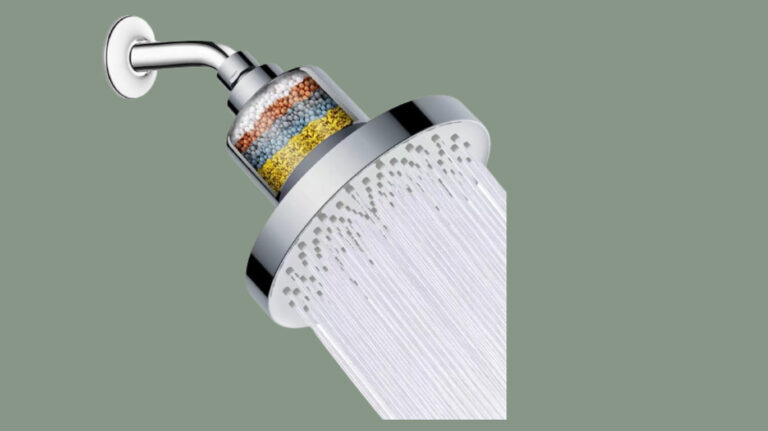Effective Stress Management Strategies for the Modern Professional
Stress management techniques are methods used to control and reduce the stress that people feel in their daily lives. These techniques are especially important for busy professionals who often face high levels of stress due to their demanding work schedules.
For example, a manager at a large corporation might use time management techniques to organize their workload and avoid last-minute rushes, while a healthcare professional might practice deep breathing exercises to stay calm during hectic shifts.
Have you ever felt overwhelmed by your to-do list at work? Or found yourself unable to relax after a long day at the office? These are common experiences for busy professionals, and they highlight the need for effective stress management techniques.
Understanding how to manage stress can help improve both your professional performance and your personal well-being.
In this article, we will explore various stress management techniques that are practical and easy to implement. These techniques are designed to help busy professionals like you manage your stress levels and maintain a healthy work-life balance.
Short Answer: Stress Management Techniques
Stress management techniques involve various methods to reduce and control stress. These can include time management, prioritization, healthy lifestyle choices, mindfulness, relaxation exercises, building a support system, and seeking professional help when needed.
Each technique helps in different ways to manage the physical and mental effects of stress.
1. Understanding Stress and Its Impact on Busy Professionals
What is Stress?
Stress is the body’s response to any demand or challenge. For busy professionals, common causes of stress can include heavy workloads, tight deadlines, and the pressure to perform well.
When you experience stress, your body releases hormones like adrenaline and cortisol, which prepare you to deal with the situation. However, chronic stress can lead to negative health effects.
Effects of Stress on Health and Performance
Stress affects both your physical and mental health. Physically, it can cause headaches, fatigue, and sleep disturbances. Mentally, it can lead to anxiety, depression, and difficulty concentrating.
In the workplace, stress can decrease your productivity, increase absenteeism, and lower your overall job satisfaction. Managing stress is crucial to maintaining your health and achieving your professional goals.
2. Time Management and Prioritization
Effective Time Management Strategies
Good time management involves planning and organizing your tasks to make the most of your day. Start by making a to-do list and prioritizing your tasks based on their importance and deadlines.
Use tools like calendars and planners to schedule your activities and set reminders for important deadlines. Setting realistic goals and breaking them down into smaller, manageable tasks can also help you stay focused and reduce stress.
Prioritization Techniques
One effective prioritization technique is the Eisenhower Matrix, which divides tasks into four categories: urgent and important, important but not urgent, urgent but not important, and neither urgent nor important.
This helps you focus on what truly matters. Another method is the ABC method, where you label tasks as A (most important), B (important but not urgent), and C (least important). This way, you can tackle the most critical tasks first and avoid feeling overwhelmed.

3. Healthy Lifestyle Choices for Stress Management Techniques
Nutrition and Hydration
Maintaining a balanced diet is essential for managing stress. Eating a variety of fruits, vegetables, lean proteins, and whole grains can provide the energy and nutrients your body needs to cope with stress. Staying hydrated is equally important, as dehydration can exacerbate feelings of stress and fatigue.
Regular Exercise
Physical activity is a powerful stress reliever. Regular exercise releases endorphins, which are natural mood lifters. It also helps you sleep better, improves your concentration, and reduces symptoms of anxiety and depression.
Incorporate simple exercise routines into your busy schedule, such as brisk walking, yoga, or even short workout sessions during breaks.
Adequate Sleep
Getting enough sleep is crucial for stress management. Poor sleep can increase stress levels and negatively impact your mood and cognitive function. Establish a regular sleep routine, avoid caffeine and electronics before bed, and create a restful sleeping environment to improve the quality of your sleep.
4. Mindfulness and Relaxation Techniques
What is Mindfulness?
Mindfulness involves paying full attention to the present moment without judgment. It’s about being aware of your thoughts, feelings, and sensations as they happen.
For busy professionals, mindfulness can be a powerful tool to reduce stress and increase focus. Practicing mindfulness can help you stay calm and centered, even in high-pressure situations.
Mindfulness Practices for Busy Professionals
There are several simple mindfulness practices you can incorporate into your daily routine. Start with mindful breathing – take a few minutes each day to focus on your breath, inhaling and exhaling slowly and deeply.
Another technique is mindful walking, where you pay attention to the sensation of each step and the environment around you. You can also practice mindfulness during routine activities, such as eating or drinking, by fully engaging your senses in the experience.
Relaxation Techniques
Deep Breathing Exercises
Deep breathing exercises are a quick and effective way to reduce stress. Try this simple exercise: sit comfortably, close your eyes, and take a deep breath in through your nose, allowing your abdomen to expand.
Hold the breath for a few seconds, then exhale slowly through your mouth. Repeat this process for a few minutes. Deep breathing helps to activate the body’s relaxation response, lowering your heart rate and reducing tension.
Progressive Muscle Relaxation
Progressive muscle relaxation (PMR) involves tensing and then relaxing different muscle groups in your body.
Start with your feet and work your way up to your head, tensing each muscle group for a few seconds before releasing the tension. PMR can help you become more aware of physical tension and promote a state of relaxation.
5. Building a Support System
What is a Support System?
A support system is a network of people who provide emotional, practical, and professional support. Having a strong support system is crucial for managing stress, as it can offer you the encouragement and assistance you need during challenging times. Your support system can include family, friends, colleagues, mentors, and professional counselors.
Benefits of Having a Support System
A good support system can help you feel more connected and less isolated. It can provide different perspectives on your problems and offer solutions you might not have considered. Emotional support from loved ones can boost your mood and reduce stress, while practical support from colleagues can help you manage your workload more effectively.
Cultivating Professional and Personal Relationships
Networking Strategies
Building a strong professional network is essential for career growth and stress management. Attend industry events, join professional organizations, and participate in online forums to connect with others in your field. Networking can open up new opportunities, provide valuable insights, and help you find mentors who can guide you in your career.
Maintaining Healthy Personal Relationships
Invest time in nurturing your personal relationships. Make an effort to stay connected with family and friends, even if it’s just through regular phone calls or video chats.
Share your experiences and feelings with them, and be open to listening to their advice and support. Having a reliable support system can significantly reduce your stress levels and improve your overall well-being.

6. Professional Help and Resources
When to Seek Professional Help
Sometimes, managing stress on your own may not be enough. It’s important to recognize the signs that indicate you might need professional help.
These signs can include persistent feelings of sadness or anxiety, difficulty functioning at work or in daily life, and physical symptoms like chronic headaches or stomach problems. If you experience any of these symptoms, it might be time to seek help from a mental health professional.
Types of Professional Support Available
There are various types of professional support available for stress management. Psychologists and therapists can provide counseling and therapy to help you cope with stress and develop healthier coping strategies. Psychiatrists can offer medical treatments if needed.
Additionally, many workplaces offer Employee Assistance Programs (EAPs) that provide confidential counseling services and resources for managing stress.
Useful Resources
Stress Management Apps and Tools
There are many apps and tools designed to help you manage stress. Apps like Headspace and Calm offer guided meditation and mindfulness exercises.
Other apps, like Todoist and Trello, can help you organize your tasks and improve your time management skills. Utilizing these resources can make it easier to incorporate stress management techniques into your daily routine.
Books and Online Resources
Reading books on stress management can provide you with deeper insights and practical tips. Some recommended titles include “The Relaxation and Stress Reduction Workbook” by Martha Davis and “The Mindfulness Solution” by Ronald D. Siegel. Additionally, many websites and online courses offer valuable information and techniques for managing stress.

Conclusion
Recap of Key Points
In this article, we explored various stress management techniques that busy professionals can use to maintain their well-being. These techniques include effective time management and prioritization, making healthy lifestyle choices, practicing mindfulness and relaxation, building a support system, and seeking professional help when necessary.
Final Thoughts
Managing stress is crucial for maintaining both your professional performance and personal well-being. By implementing the techniques discussed in this article, you can better handle the demands of your busy schedule and lead a healthier, more balanced life. Remember, taking care of your mental and physical health is essential for long-term success and happiness.
Frequently Asked Questions (FAQs)
1. What are some quick stress management techniques I can use at work?
Some quick stress management techniques you can use at work include deep breathing exercises, taking short breaks to stretch or walk, and practicing mindfulness.
Deep breathing helps calm your nervous system, while short breaks can reduce physical tension and mental fatigue. Mindfulness, such as focusing on the present moment and letting go of stressors, can also be practiced briefly throughout the day to maintain your calm and focus.
2. How can I balance a demanding job and personal life to reduce stress?
Balancing a demanding job and personal life requires effective time management and setting clear boundaries. Prioritize your tasks and focus on what is most important.
Schedule time for personal activities and stick to it. Communicate your boundaries to colleagues and family members to ensure they understand your need for personal time. Additionally, making time for regular exercise, hobbies, and relaxation can help maintain a healthy balance and reduce stress.
3. What should I do if I feel overwhelmed by stress at work?
If you feel overwhelmed by stress at work, take a moment to pause and breathe deeply. Break your tasks into smaller, more manageable steps and tackle them one at a time.
Speak with your manager about your workload and see if there are ways to redistribute tasks or adjust deadlines. Don’t hesitate to seek support from colleagues, friends, or professional counselors if needed. It’s important to address overwhelming stress early to prevent burnout.
4. Are there specific foods that help reduce stress?
Yes, certain foods can help reduce stress by providing essential nutrients that support brain health and mood regulation. Foods rich in omega-3 fatty acids, such as salmon and walnuts, can help reduce inflammation and improve brain function.
Dark chocolate, rich in antioxidants, can also have a calming effect. Other stress-relieving foods include leafy greens, berries, and whole grains. Maintaining a balanced diet with these foods can help manage stress levels.
5. How can mindfulness be incorporated into a busy professional’s daily routine?
Mindfulness can be incorporated into a busy professional’s daily routine in several ways. Start your day with a few minutes of mindful breathing or meditation to set a calm tone.
Practice mindfulness during routine activities, such as eating lunch or walking to meetings, by paying full attention to the present moment. Use mindfulness apps for guided exercises during breaks. Even a few minutes of mindfulness each day can significantly reduce stress and improve focus.






